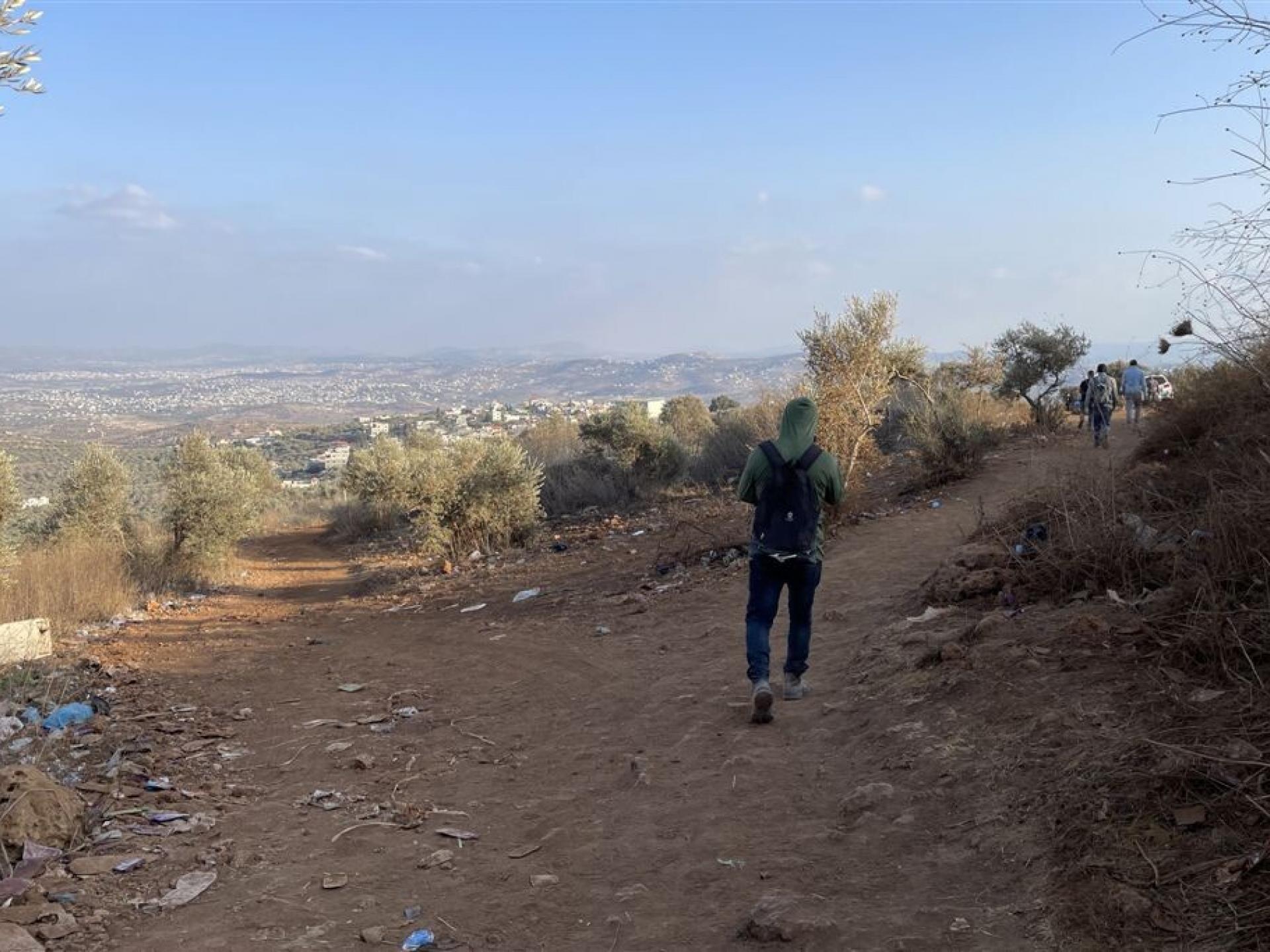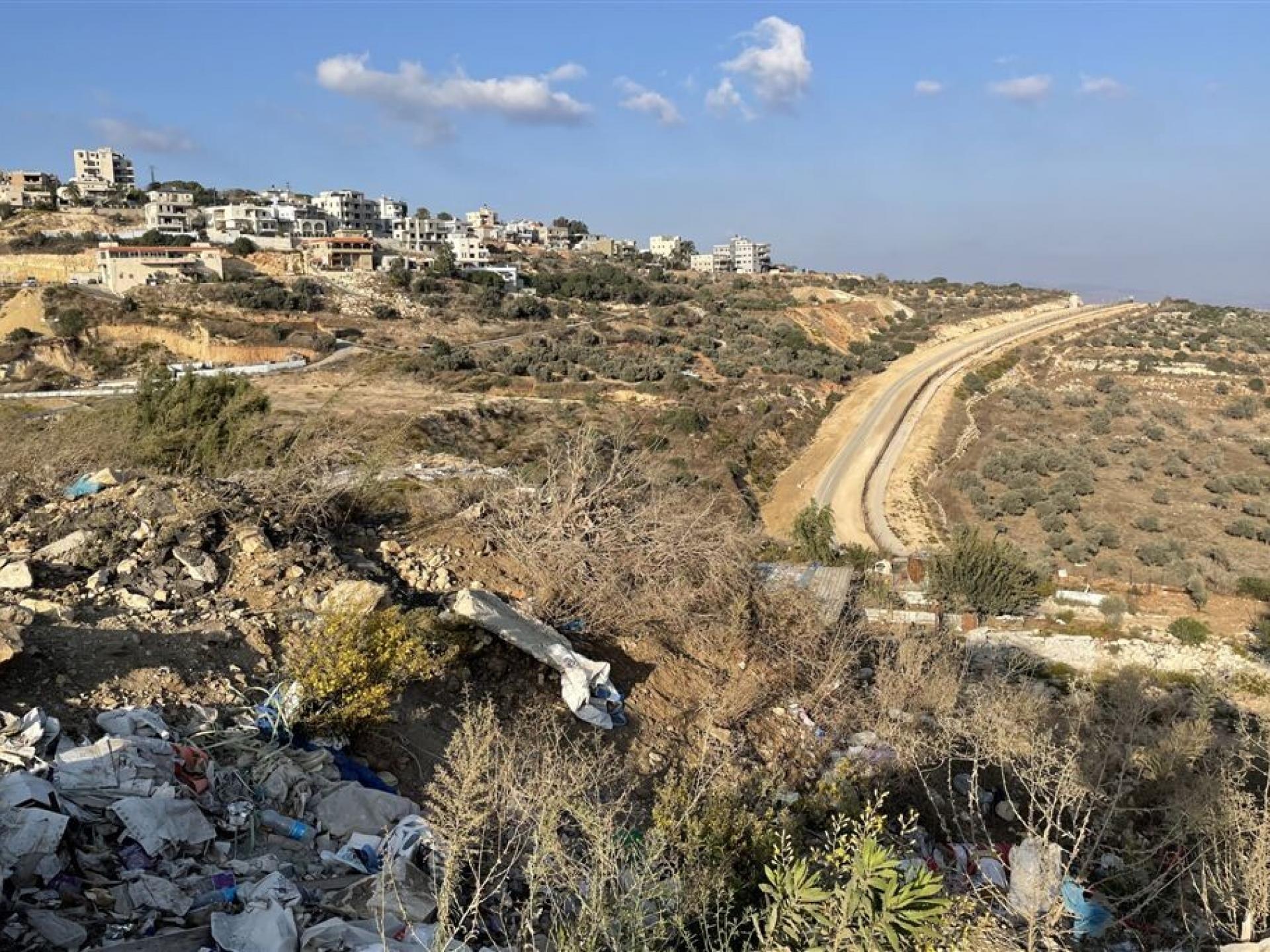Anin checkpoint: free passage
14:45 - We pass by Barta’a checkpoint. All the parking lots on the Palestinian side are full. The truck parking lot on their way to inspection - also full. There were no cars on the road.
Crossing the village of Amricha. Garbage containers at the entrance are filled to overflowing. We are in Sector C (under full control of Israel). Who is responsible here for emptying the garbage?
14:50 - Ya’bed-Dotan Checkpoint
Cars pass with no delay. Here also, as with Tura checkpoint, garbage from the army is scattered on the side of the road. An army jeep that arrives from the direction of Mevo-Dotan stops next to us. A soldier gets out and asks us politely not to park on the side of the road “because it jumps the entire sector.” (It ignores the delineated area.) He suggests that we park in monument square, opposite, in the area of the checkpoint.
15:10 - Barta’a-Reihan checkpoint, on the Seamline Zone side
Many returning from a day’s work arrive in different vehicles. A bus diver resents that we are sitting in the car, looking into his vehicle, and writing. Afterward, it turns out that he was joking: he is a driver from Baka’a al Garbiya who gave out pens to us from the Yonit-Shalom Company of which he is the owner. “You don’t remember”? I certainly do. We parted on a friendly note.
15:30 - Tura-Shaked Checkpoint
A terrible stench met us. Perhaps the source is a pile of army garbage and poultry manure used as fertilizer in the fields during the winter. Few move here now. The call of the muezzin from Daher al Malec and the howling of the jackals from the direction of Shaked, sound like special tones. A cat sits on the breach in the fence opposite the cypresses.
15:50 - Anin Checkpoint
The army and a representative of the District Command are next to the locked inner gate, where, next to the gate is a wide gap. In the “terminal” we recognized Abu S. and his wife from El Radiya. They are on their way to a wedding in Anin. They are loaded down with presents and food. The soldiers don’t allow them to pass. We suggest that we request passage for them. “No, no it’s not necessary; they will leave and we will pass . .” However, we suspect that the soldiers will ambush them. How will they get to the wedding? “There are places,” they say with a smile. We offer: “Come, we will take you to Umm al Fahm.” They are happy with the offer, and we are introduced to the short road that connects the West Bank with Umm al Fahm via a large breach in the separation fence. Many workers, especially young people, who return from work in Israel, go through this hole with total confidence. A mobile police car patrolling the main road of the city ignores what has just occurred.


